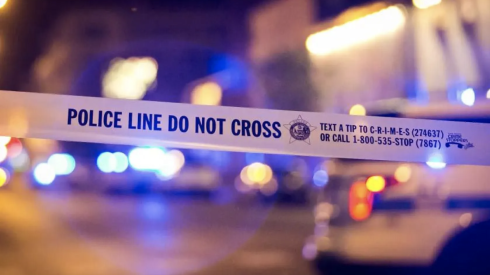BY Dan McGrath
The mercenaries from Blarney Tap ruled Kennedy Park softball with Yankees-like imperiousness through the 1960s. Our Red’s Drive-In squad saw how they did it when we graduated to the Kennedy men’s league as we approached our 20s.
Blarney’s regular-season team was slightly older neighborhood guys, for the most part. Good ballplayers, but we held our own, even beat them a few times.
Come playoff time, the Blarney bunch was almost unrecognizable—serious players from all over the South Side. They’d been on Blarney’s roster all season, but they were busy with high-stakes action elsewhere and only showed up at Kennedy when the games really mattered … and there was money to be made.
Sixteen-inch softball could be a lucrative side job for an elite player back then, and Blarney’s tapped into a network of bombers who could clear 114th Street with home runs when they weren’t disfiguring a third baseman’s fingers with line drives. “Ringers,” they were called. We never bothered with them … and we never beat Blarney’s in a playoff game in all my years at Kennedy Park.
I flashed back to the “ringer” concept last week, when scoring maestro Kevin Durant departed Oklahoma City and signed with the Golden State Warriors, who, it might be argued, were so frustrated by their failure to defend the NBA title that they brought in a ringer.
I like Durant, and I have a soft spot for the Warriors dating to the raucous Bernard King-World B. Free days, when I watched them a lot and occasionally covered them. But I didn’t like Durant turning his back on a team he had represented with great distinction for nine seasons and joining forces with the rival that had just beaten him in an agonizingly close playoff series.
It struck me as disloyal … and I know that’s hypocritical. If I were working in Oklahoma City and I got a call from the San Francisco Chronicle, I’m headed west on the first thing smoking if I sense an opportunity to better myself.
Durant has the same right. All professional athletes eventually do, and it took them lots of years and countless labor wars before they could claim it.
Spare me the notion that sports is anything but business—huge business—after last week’s NBA spending orgy turned some modestly talented tall guys into oil sheiks—$64 million for Timofey Mozgov?
But some of us grew up with the quaint notion that sports—team sports, anyway—is somehow different from more conventional business. More emotional, less complicated; the better man wins, and it’s settled on the field. To be part of a team is to be part of something larger than one’s self. Bonds are forged over time. There’s loyalty to a shared mission.
Durant’s move is another sad example of how badly the concept of team has eroded in sports, and not just among the pros.
Every young baseball player with aspirations is more likely to throw in with a travel team of virtual strangers than with neighborhood buddies in a local Little League program.
AAU basketball has totally supplanted the high school game as a talent incubator, with top players cherry-picked onto teams more loyal to a shoe brand than to any school.
The one-and-done rule has turned college ball into a revolving-doored NBA waiting room, with such blue-blood programs as Kentucky, Duke and North Carolina turning their rosters over nearly every year.
Michael Jordan played three years as a collegian, Tim Duncan four. Basketball was better for it, college and pro.
My friend Stone lives and dies with the Cubs, and he’s fretting that this rough patch they’ve hit suggests 1969 all over again. “Only they’re fading in July and not waiting till September,” he laments.
The ‘69 Cubs are a symbol of epic failure, yet they remain one of the most popular teams in Chicago history. Familiarity was part of their appeal: Ernie Banks had been a Cub since 1953, Ron Santo since 1960, Billy Williams since ‘61, Don Kessinger since ‘64, Glenn Beckert and Ken Holtzman since ‘65. Fergie Jenkins and Randy Hundley came from elsewhere, but established themselves as big leaguers with the Cubs. The team grew up together.
The current bunch can achieve similar staying power if its young core—Bryant, Rizzo, Schwarber, Russell—is kept intact. Jon Lester is a hired gun, and Jason Heyward and John Lackey pulled a Kevin Durant by signing with their previous team’s biggest rival.
Maybe it works, maybe it doesn’t. Regardless, it’s the way of the world.




